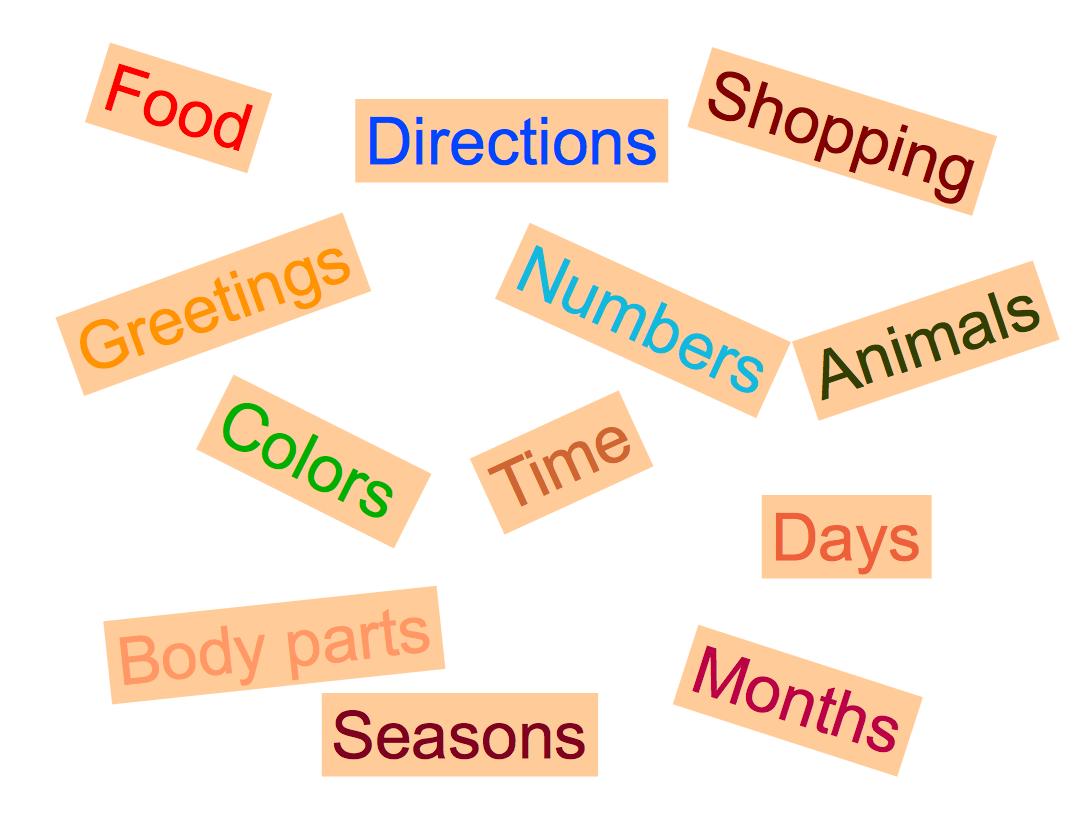The Story-Approach for Effective Language Learning
 Many language courses - be they books, CDs, online programs, or apps - are structured around learning particular vocabulary topics: “survival words & phrases,” such as greetings, numbers, directions, shopping, time, days, months, etc., or "categories," such as colors, food items, parts of the body, animals, objects found in the home, etc.
Many language courses - be they books, CDs, online programs, or apps - are structured around learning particular vocabulary topics: “survival words & phrases,” such as greetings, numbers, directions, shopping, time, days, months, etc., or "categories," such as colors, food items, parts of the body, animals, objects found in the home, etc.
Clearly, these words and phrases are important to learn and know. However, if they are just introduced as a list and without context, they are difficult to retain.
That's why GamesforLanguage.com has chosen a “Story-Approach”: Each new word is introduced as part of an ongoing story – a young man traveling to the country of the foreign language that is to be learned: Germany, France, Italy, Spain, and the U.S, the last one for speakers of Spanish.
Will this young man use all the vocabulary contained in the various topics mentioned above? Probably not.
But the 700 words that make up the many phrases and sentences in each GamesforLanguage course will not only be more useful, but also easier to remember and apply. That is what's important to most learners: acquiring vocabulary that they can use in daily life.
For learners who already have some background in one of the four languages, GamesforLanguage provides a fun and effective way to “brush up” on their foreign language.
They can skip the “Memory Games” and immediately focus on “Snap Clouds,” “Shooting Gallery,” or “Word Hero” to test their vocabulary; practice translation and sentence building with “Word Invaders” or “Shoot Out”.
Interacting repeatedly with the elements of “The Story” - hearing, saying, writing, and recording words, phrases, and sentences in context - is an effective way to memorize, retain and learn to apply the language you're learning.
This YouTube clip for French shows how all the new words of "The Story" are playfully being learned in various easy games. Learning with a story that continues from Scene to Scene keeps up one's interest more than the often unrelated dialogues so many language programs are using!
